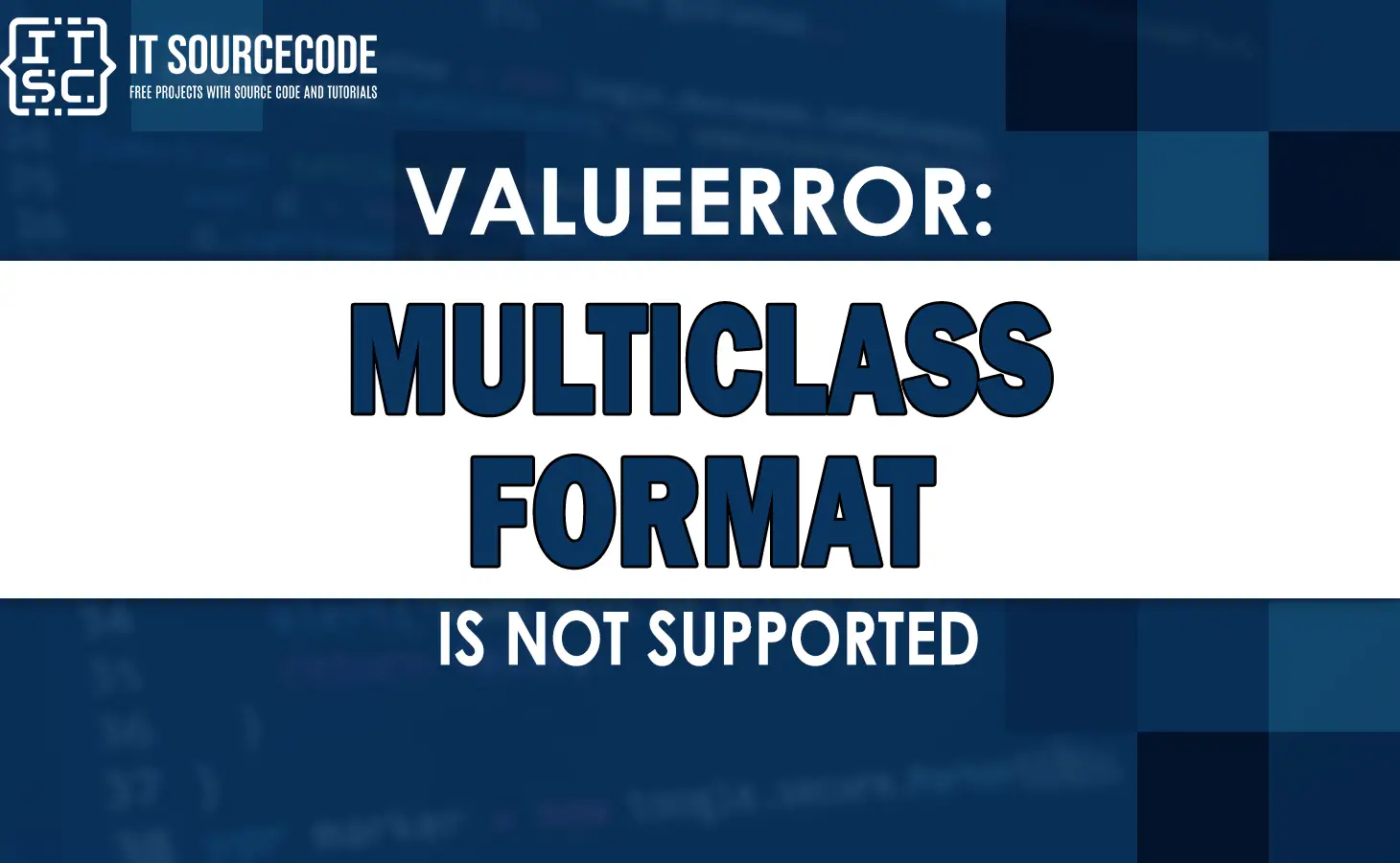One of the common errors that you might encounter while working with machine learning models is:
ValueError: multiclass format is not supported error
This error typically occurs when we attempt to fit a multiclass classification model with an unsupported format or when the data is not properly formatted.
Understanding the ValueError multiclass format is not supported
The ValueError multiclass format is not supported error is occurred when we are attempting to train a machine learning model on a multiclass classification problem.
Multiclass classification refers to a classification task where the target variable can have more than two distinct classes.
This error shows that the format of the data you are trying to use for training the model is not compatible with the chosen algorithm.
Causes of the ValueError
There are several possible causes for the multiclass format is not supported error.
Let’s understand some of the common reasons why this error might occur:
- Incorrect target variable format
- Mismatched number of classes
- Incorrect data encoding
How to Fix the multiclass format is not supported error?
Now, let’s move on to some example codes and solutions to resolve the multiclass format is not supported error.
The following are the solutions you can apply to fix the valueerror multiclass format is not supported:
Solution 1: Check Target Variable Format
Firstly, make sure that the target variable is formatted appropriately.
Here’s an example code snippet to illustrate the correct format for a multiclass classification problem:
# Example code for checking target variable format
import pandas as pd
# Load the dataset
data = pd.read_csv('your_dataset.csv')
# Check the target variable format
target_variable = data['target']
# Print the first few entries
print(target_variable.head())
Make sure that the target variable consists of the class labels in the expected format, such as categorical values or encoded numerical values.
Solution 2: Check Number of Classes
Next, double-check the number of classes in your data. You can use the following code snippet to count the unique classes in the target variable:
# Example code for verifying the number of classes
num_classes = len(target_variable.unique())
print("Number of classes:", num_classes)
You can compare the collected number of classes with the requirements of your chosen algorithm.
Make sure that they are matched, as a mismatch can trigger the ValueError exception.
Solution 3: Perform Data Encoding
If your algorithm needs a specific data encoding, such as one-hot encoding or label encoding, apply the proper encoding to the target variable.
Here’s an example code snippet for one-hot encoding using scikit-learn:
# Example code for performing one-hot encoding
from sklearn.preprocessing import OneHotEncoder
# Create an instance of the OneHotEncoder
encoder = OneHotEncoder()
# Reshape the target variable for encoding
target_variable_encoded = target_variable.values.reshape(-1, 1)
# Apply one-hot encoding
target_variable_encoded = encoder.fit_transform(target_variable_encoded).toarray()
print(target_variable_encoded)
Make sure that the encoded target variable is in a compatible format for the chosen algorithm.
FAQs
The error suggests that the data format used for training a multiclass classification model is not compatible with the chosen algorithm.
Yes, libraries like pandas and scikit-learn provide functionalities for data manipulation and encoding, which can be useful in resolving this error.
The “ValueError: multiclass format is not supported” error typically occurs because you are trying to apply a classification algorithm or function that does not support multiclass classification.
Conclusion
In this article, we discussed the ValueError: multiclass format is not supported error that you may encounter while working with multiclass classification models.
Also, we discussed the causes of this error and provided example codes and solutions to resolved it.
More Resources
The following articles can help you to understand more about on how to fix the valuerrors you might encounter while running a program.

